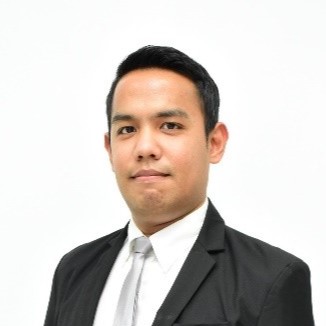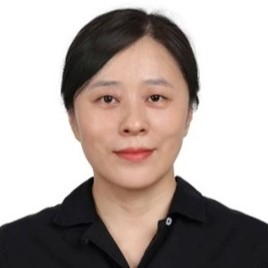Super Session 3
28 Nov 2025, 11:00 - 12:30 | Energy Exchange
"Fundamentals of Small Modular Reactors (SMRs): Technology, Design, and Deployment"
Synopsis
Small Modular Reactors (SMRs) are emerging as a promising technology to support decarbonization and energy security goals, offering enhanced safety features, scalability, and compatibility with renewable energy integration. For Thailand, enabling SMRs requires a holistic approach that addresses policy, technology, and partnerships across multiple stakeholders. From a utility perspective, key considerations include grid integration, operational flexibility, and cost competitiveness. Regulatory readiness and alignment with international safety standards are critical for licensing and public confidence, requiring strong cooperation with global nuclear agencies. Research institutions play a pivotal role in developing skilled human resources, advancing local expertise, and fostering public acceptance through transparent communication. Meanwhile, technology vendors provide clear technology roadmaps, supply chain, and project implementation experience to support embarking countries. By analyzing global best practices and Thailand's unique energy landscape, this work outlines actionable strategies to accelerate SMR deployment through coordinated policy frameworks, technological innovation, and strategic partnership.

Kampanart Silva
Researcher, National Energy Technology Center: ENTEC
Session Chair
Kampanart Silva received his doctoral degree in nuclear engineering and management from the University of Tokyo. He started his work as a nuclear scientist at Thailand Institute of Nuclear Technology (TINT) in 2012. He pioneered research on nuclear power safety and risk assessment at TINT, with a focus on accident consequence assessment. He moved to National Energy Technology Center (ENTEC) under National Science and Development Agency (NSTDA) in 2019 where he has broadened his research interest to cover enhancing resilience of energy and transportation infrastructure and equipping them with climate adaptation capacity. He published articles in several well-known scientific journals, such as Reliability Engineering and System Safety, Nuclear Engineering and Design, Progress in Nuclear Energy, and Energy for Sustainable Development. He took a leading role in several translational research projects for domestic and international organizations, such as United Nations Development Programme (UNDP), New Energy and Industrial Technology Development Organization (NEDO), Japan International Cooperation Agency (JICA), APEC Energy Working Group, Department of Alternative Energy Development and Efficiency (DEDE), Energy Policy and Planning Office (EPPO), Department of Climate Change and Environment (DCCE). He is one of the founding members of the ASEAN Network on Nuclear Power Safety Research (ASEAN NPSR), and an alternate representative from Thailand to the ASEAN Sub-Committee on Sustainable Energy Research (SCSER). He was a co-chair and an executive committee member of Thai Young Scientists Academy (TYSA), the Vice President for Outreach and Linkages of ASEAN Science Diplomats, and currently a co-chair of the ASEAN Young Scientists Network. He received several outstanding awards and fellowships, including Fellow Prize of Atomic Energy Society of Japan in 2012, Japan Society for the Promotion of Science (JSPS) JSPS Ronpaku Fellowship during 2013 - 2016, JSPS Bridge Fellowship in 2017, Young Nuclear Scientist Award in 2019, US-ASEAN Institute for Rising Leaders Fellowship in 2023, and Technology Development Award of Atomic Energy Society of Japan in 2024.

Arin Temeyakul
Director, Power Plant Engineering Division, Electricity Generating Authority of Thailand (EGAT)
Speaker
Mr. Arin Temeyakul is Director of the Power Plant Engineering Division at the Electricity Generating Authority of Thailand (EGAT). He holds a master's degree in Industrial Engineering (International Program) from Kasetsart University in collaboration with Case Western Reserve University, USA, and a bachelor's degree in Electrical Engineering from FEATI University, the Philippines. With over 30 years of experience in Thailand's power generation industry, he specializes in power transmission, grounding, lightning protection, and electrical safety. He has been a keynote speaker at major energy forums such as SETA 2023 and Enlit Asia 2023, and has contributed to developing national electrical installation standards through TESIA, EIT, and EGAT.

Ben McIntosh
Special Assistant, Nuclear Competitiveness Team, U.S. State Department, Bureau of Arms Control and Nonproliferation
Speaker
Ben McIntosh is the Special Assistant for the Nuclear Competitiveness Team with the Department of State. He focuses on promoting U.S. nuclear energy companies and regulatory regimes abroad to provide consistent and reliable baseload power for an energetically evolving world. He has an MA in non-proliferation from the Middlebury Institute of International Studies at Monterey. Ben previously served as an INL Program Manager in Panama City, Panama and as a Consular Officer in Beijing, China.

Soon Kil Jung
General Manager, Korea Hydro & Nuclear Power Co., Ltd. (KHNP)
Speaker
Soonkil Jung is a General Manager at Korea Hydro & Nuclear Power (KHNP), where he has been contributing for over 20 years in the field of nuclear and renewable energy development. He currently leads business initiatives within the Overseas SMR (Small Modular Reactor) Project Section, focusing on advancing KHNP's SMR deployment and international cooperation strategies. Throughout his career at KHNP, Mr. Jung has held several key positions, including Senior Manager (2013 - 2025) and Manager (2005 - 2013), overseeing overseas energy development and investment projects. His earlier professional experience also includes service as a Platoon Leader in the Republic of Korea Army (2000 - 2002).
Mr. Jung earned his MBA from ESADE Business School (2019 - 2021) and holds a Bachelor's degree in Psychology from Kyungpook National University (1996 - 2000). He continues to play a leading role in promoting sustainable and innovative nuclear solutions through KHNP's international SMR business development.

Xiang Ranran
Deputy Director of the Nuclear Energy Development Department, China National Nuclear Corporation Oversea Ltd. (CNOS)
Speaker
Ms. Xiang Ranran is the Deputy Director of the Nuclear Energy Development Department at China National Nuclear Corporation Overseas Ltd. (CNOS). She holds a Bachelor's degree and a Master's degree in Management (Investment and Cost Management) from Dongbei University of Finance and Economics and Tianjin University, respectively. With over 15 years of professional experience in international nuclear power project development, Ms. Xiang has played key roles in project bidding, contract negotiation, cost estimation, and marketing of nuclear technologies. She previously oversaw contract and cost management for nuclear power projects under construction in Pakistan and later led renewable power investment initiatives focusing on financial modeling and investment negotiations. Currently, she leads overseas nuclear energy development projects, including the preparation of bidding documents, contract negotiations, cost estimations. She is also actively engaged in marketing activities, such as technical and commercial presentation and communication, exhibition, and workshop.

Pantip Ampornrat
Senior Nuclear Engineer : Office of Atoms for Peace (OAP)
Speaker
Dr. Pantip Ampornrat holds a Ph.D. in Nuclear Engineering and Radiological Sciences from the University of Michigan, Ann Arbor, USA. She also earned two master's degrees-one from the University of Michigan and another from the Department of Nuclear Technology, Faculty of Engineering, Chulalongkorn University. Her academic journey began with a bachelor's degree in Physics from Mahidol University. Currently, Dr. Pantip works in the Nuclear Licensing Group, Division of Nuclear and Radiation Licensing, Office of Atoms for Peace under the Ministry of Higher Education, Science, Research and Innovation, Thailand. This agency is responsible for nuclear and radiation regulatory oversight in the country. Her expertise spans nuclear safety regulation, reactor component materials, material degradation mechanisms in nuclear reactors, radiation effects on reactor metals, and nuclear reactor design for both research and power applications. She is also proficient in nuclear-based material analysis techniques such as neutron scattering and neutron activation analysis. Dr. Pantip has led several key projects, including the licensing of the BNCT research reactor at Suranaree University of Technology and the regulatory oversight of aging management for the TRR-1/M1 research reactor at the Thailand Institute of Nuclear Technology. She actively follows the development of Small Modular Reactors (SMRs) and explores regulatory frameworks aligned with IAEA and international standards.